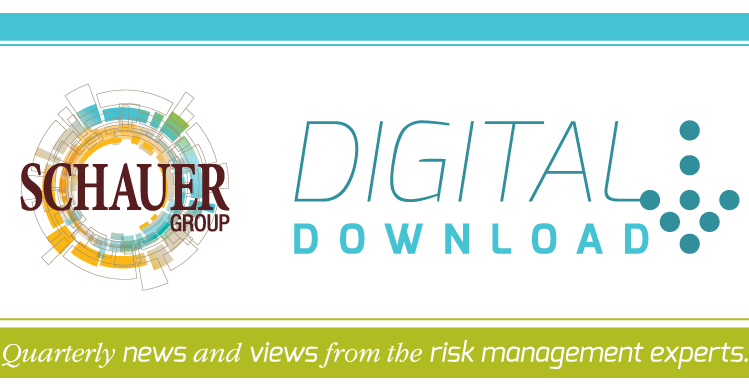Demand is growing for supplemental health and financial benefits – so much so that by 2026, enrollment in voluntary benefits is expected to be up 20 percent, according to The Council of Insurance Agents and Brokers.
Broadly, voluntary benefits are those benefits that go above and beyond the basic health care benefits package and help support overall wellbeing for employees – anything from disability insurance to pet insurance. In the past few years, two voluntary benefits have steadily increased in popularity: mental health benefits and caregiver benefits.
Mental health benefits
Since 2020, 94 percent of large employers have strengthened mental health coverage, according to the U.S. Chamber of Commerce.
It makes sense, as mental health challenges continue to rise for workers. A Business Group on Health survey of large employers found more than three-quarters of those employers observed an increase in issues such as anxiety and substance abuse among their employees last year, and they ranked improving access to mental health support as a key priority for 2024.
Workers also report experiencing decreased mental health and limited mental health resources. A 2023 state-of-the-workforce mental health survey showed 86 percent of workers had a mental health challenge in the past year, but only 33 percent had gotten help. And only one-third of workers felt their benefits provided adequate support for their mental health needs.
For employers, there are several options when it comes to offering more robust mental health benefits. One of the simplest ways to provide additional support for your team is through an Employee Assistance Program, which is an employer-sponsored program that helps employees manage different problems that can negatively affect their performance at work, such as stress, depression, grief, and family issues.
Typically, EAPs provide employees with free short-term therapy, referral services, and follow-up plans. In some cases, they even can provide business coaching and financial counseling, according to Magellan Healthcare. All services provided by EAPs are supplementary to any mental health benefits provided by a health care plan and ensure all employees have access to some amount of no-cost mental health support.
Not only do mental health benefits help improve employee wellbeing, but they also help companies with talent attraction – a survey from the American Psychological Association found 81 percent of workers would look for an employer that offered mental health support when seeking a new job opportunity.
Caregiver benefits
Along with mental health benefits, companies also are adding additional benefits for caregivers.
A caregiver generally is defined as a person who is responsible for helping care for someone who can’t care for themselves, such as a child, an elderly relative, or someone battling a chronic illness.
A new study from Harvard University’s business school estimates 75 percent of people who work also have caregiving duties – and that many of those caregivers are struggling. Most report their caregiving duties keep them from performing their best at work at least some of the time, and half of workers between the ages of 26 to 35 who also are caregivers say caregiving has negatively affected their productivity.
Companies interested in offering caregiver support can do so in a variety of ways. Common options include both senior care and child care benefits – such as stipends that can be used to cover the costs of care, concierge services that will help research the best options for care, discounts at care centers, and backup care programs that help when short-term care emergencies arise, according to Care.com.
In addition, there are some no-cost steps employers can take to support caregivers – flexible hours, remote work options, and single-category PTO all can help ease some of the burden on caregivers.
Schauer Group’s employee benefits team can help your organization design a benefits package that both meets the needs of your employees and supports your talent attraction and retention goals. If you’d like to discuss further, please reach out.
Note: This communication is for informational purposes only. It is not intended to be construed as legal or financial advice and should not be relied on as such. No material contained within this website should be construed or relied upon as providing recommendations in relation to any specific legal, financial, investment, or insurance product. Before making any commitment of a legal, financial, investment, or insurance nature, you should seek advice from a qualified and registered practitioner or adviser who can appraise your specific needs. Schauer Group, Inc. disclaims any and all liabilities incurred as a result of reliance upon the information presented herein.
SOURCES
- Meeting the Growing Call for Voluntary Benefits | Leader’s Edge Magazine
- New Survey of American Businesses Shows Employers Are Acting to Support Growing Demand for Mental Health Services | U.S. Chamber of Commerce
- 2024 Large Employer Health Care Strategy Survey | Business Group on Health
- State of Workforce Mental Health | Lyra
- Manager’s Program Guide | Magellan Healthcare
- Workers appreciate and seek mental health support in the workplace | American Psychological Association
- Healthy Outcomes | Harvard Business School
- Voluntary benefit trends we’re seeing | Goldman Sachs Ayco
- Top employer-sponsored child care benefits for the summer | Care for Business
- 2024 Future of Benefits Report | Care for Business
© 2024 Schauer Group. All Rights Reserved.






